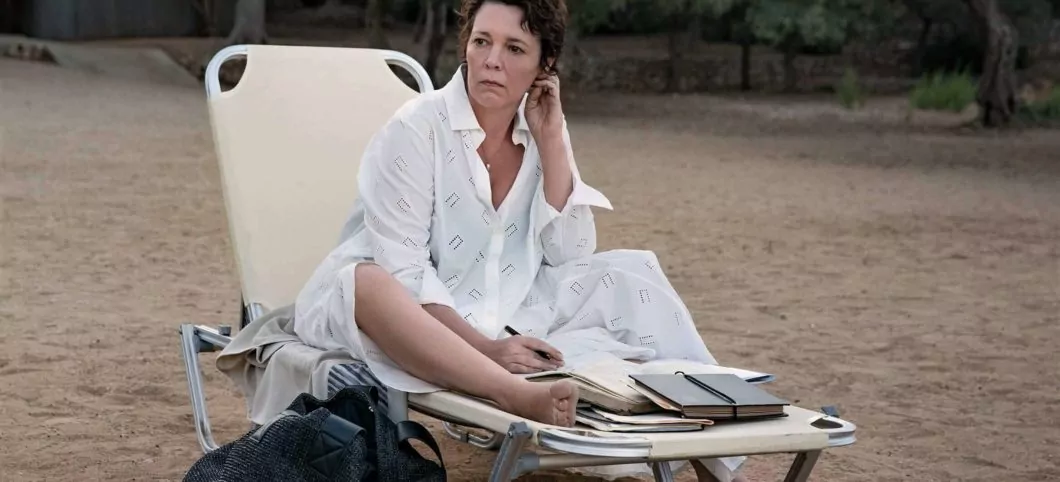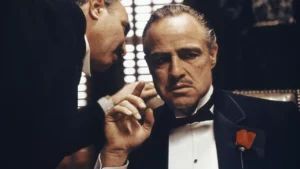The Maggie Gyllenhaal directed movie, The Lost Daughter, released on Netflix on the 31st of December, though it was released in Venice in October 2021. The movie is based on the book of the same name by Elena Ferrante.
The Lost Daughter Movie Cast
- Olivia Colman as Leda
- Dakota Johnson as Nina
- Jessie Bucklev as Young Leda
- Paul Mescal as Will
- Ed Harris as Lyle
The Lost Daughter Movie Plot
Leda is a college professor who is on vacation in a beach town in Greece. She meets a young mother, Nina and her daughter with whom she gets obsessed. The movie is about Leda’s motherhood past and her growing interest in Nina.

The Lost Daughter Movie Review
From what I have heard about adult life, it is being nostalgic about the past and worrying about everything wrong. As if the only reason one crosses the age of 29 is to be able to look back and wonder about how they could do things differently. While many don’t need an external trigger to start overthinking, some end up finding it anyway. Ferrante wrote this dilemma in her book and Gyllenhaal brought it to screen with their story of The Lost Daughter.
The first thing that came to my mind while watching the movie was that it was pretty different from the book. Characters were the same and yet the vision for them was different. The book makes her centred outwardly while a chronic mess in her mind. The classic over-thinker. As the book is written in the first person, it is much easier to pull that off but in the movie, the inner conflict is brought out through rambling monologues, a flirtation that soon leads to embarrassment and awkward dancing.
To stay loyal to the book, Gyllenhaal did give a contrasting scenery to the mind of Leda. The beach was painfully bright and bare to the organised clutter of Leda. She was pleasingly polite which bordered selfishness (she just wanted to be left alone) till she wasn’t. Olivia Colman’s performance of the obsessive Leda, battling anger and pain was beyond words. Watching her one has no idea whether they are rooting for her or hoping for her failure. That is the exact mindset of her character too.
She steals the doll of a young girl whose mother she is trying to impress. Dakota Johnson who plays Nina is equally infatuated by Leda and though comparatively, her screen presence is less, she is thought of in every scene. Her chemistry with Colman was enviable. They both are greatly conflicted on the topics of motherhood and their obsession with each other. Nina is searching for a doll that Colman has stolen. She is grasping for the past mistakes she made before and Nina is trying to save her relationship with her daughter; one she has already started doubting.
They are on the same track and are making decisions similar. It is how Ferrante and Gyllenhaal clarify that Leda’s pained motherhood journey has little to do with her want to pursue her career. Though that is a reason to, it is more so the result of herself being altered by this tangent of life. It involves the growing distance from her husband, her affair and her need to be alone. Leda grows a fascination with Will (Normal People star Paul Mescal) with whom Nina already has ties. The constant shifting from Young Leda and Leda is running the same track that Nina is on.
Young Leda who was played by Jessie Buckley did not have the same impact on me as Olivia’s dad. This is only because I was sure that I was not rooting for her at all. It disconnected me from her inherent confusion which too was supposed to be as messy as the present Leda. Her flirtation with her colleagues didn’t feel as shocking or as scandalous as it was supposed to be. They were the same people but apart from the conflict of being a mother they didn’t seem to share anything.
It was for this reason; I was sure that I loved the movie for everything but the story. Every character’s performance and the nostalgic yet painful cinematography is what enraptured me. Gyllenhaal deserves the best director award because the piecing together of the story was perfect. Leda flirting with Lyle (Ed Harris) or the menacing tone of the movie all added to the scattered nature of the film. It made the viewer party to the mess of her mind. Falling in love with every person Leda was getting intoxicated by. Missing her adult daughters even though they never come in the movie; similar to the disconnection that she is also feeling with them.
Unlike other dark psychological movies, the movie is personal. It does not have an overtly shocking essence that leaves the mind scarred. The only reason it is rated R is that it has sex scenes and nothing that children will understand or relate to.
The Movie Culture Synopsis
It is a movie that I will force everyone to watch to show that cinematic experiences need not only be limited to Dune or the MCU. Thought-provoking and uncomfortably amazing, it is an experience that immerses the viewer into the mind of a character without forcing itself. Worth every award that it has won.



